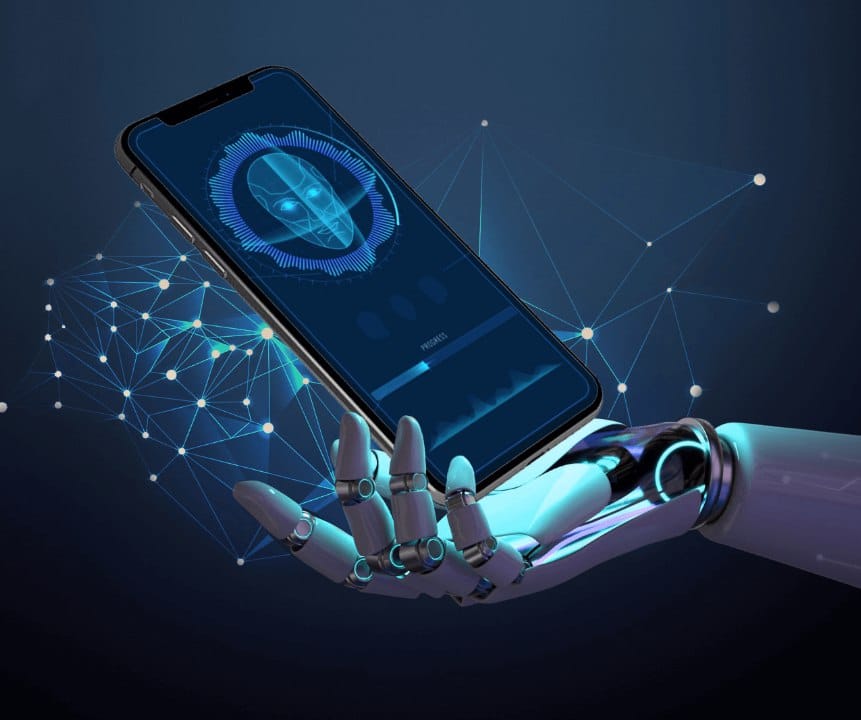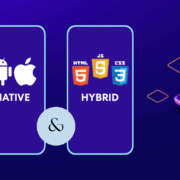The Future of AI in Mobile App Development: Opportunities and Challenges
As we are stepping into the new era, AI has successfully marked its dominance in almost every industry. Out of all, AI in mobile app development has to be the most revolutionizing impact of the new technology. AI has changed the way apps are being designed, developed, and delivered.
AI has not only proven beneficial for mobile app developers, but it is also contributing to enhancing user experience. Due to the enormous benefits that AI offers, mobile app developers are quickly adopting this technology and are trying to leverage its power to create better applications every time.
AI can unlock various improvement opportunities for mobile app developers. However, it also brings unique challenges to them in the future. In this blog post, we are going to discuss the future of AI in mobile app development along with the opportunities and challenges it could bring.
The Current State of AI in Mobile App Development
AI is already embedded in many aspects of the mobile apps that we use today. From personalized recommendations on e-commerce platforms to predictive texts in messaging apps, AI is the key driver of user experience. Features like voice recognition, facial authentication, and chatbots are the current best examples of AI in mobile apps.
With the help of AI, mobile app developers are successfully integrating such features in apps that directly contribute to improving user experience. Also, AI has made the development process smoother and more streamlined. It is already helping developers to get the best outcomes from the time, effort, and resources they are investing in mobile app development.
Opportunities AI Offers in Mobile App Development
AI already has a significant presence in the mobile app development industry. However, it is just the beginning of the AI revolution. There’s a lot that AI can offer in the future. Here, we are going to take a look at some of the opportunities that AI offers in mobile app development;
Testing Automation and Bug Detection
AI can significantly streamline the app testing process by implementing automation. Machine Learning algorithms can analyze code and identify potential bugs, security vulnerabilities, and performance issues, allowing developers to address them proactively. Automated testing using AI can reduce the time and effort required for testing, leading to faster and more reliable app releases.
Advanced-Data Analytics
AI-powered analytics tools will become more prevalent in mobile app development. Machine Learning algorithms can process vast amounts of user data and generate valuable insights, enabling developers to make data-driven decisions and improve app performance, engagement, and monetization strategies.
Predictive App Development
AI can assist developers in predicting user requirements and preferences, enabling them to build apps that align with user expectations. By analyzing user behavior, AI algorithms can anticipate user needs and suggest relevant features or content, providing a more personalized and intuitive app experience.
Improved App Security
AI algorithms can detect anomalies and potential security threats, enabling mobile app developers to make their apps more secure. Developers can integrate features like biometric authentication, fraud detection, and real-time monitoring to enhance users’ trustworthiness.
Automated App Development
AI has the potential to automate certain aspects of mobile app development, such as code generation, UI design, and feature integration. This can significantly speed up the development process and reduce the need for manual coding, allowing developers to focus on more important tasks.
Challenges AI Brings in Mobile App Development
Apart from all the significant benefits and opportunities AI offers, it is not possible that developers don’t come across any hurdles while integrating AI into mobile apps. Developers may face several challenges that need careful consideration. Let’s have a look at some prominent challenges that AI brings in mobile app development;
Ethical Issues
One of the greatest challenges that AI brings is ethical issues. AI can inherit biases within its algorithms. AI-based mobile apps aimed to assist with the decision-making process might unintentionally create biases within communities. This may result in unintended consequences that may result in a backlash for mobile app developers.
Data Privacy
As AI gathers lots of personal data and user’s sensitive information to offer customized experiences, it becomes a challenge for developers to ensure data privacy. Too much use of AI in mobile apps can cause privacy violations by overcollection of sensitive information and can attract hackers to the system.
Lack of Explainability
A significant challenge for mobile app developers is to overcome the black-box nature of AI in decision-making. Mobile apps that often use AI lack the capability to provide explanations on how certain decisions or recommendations are made. This lack of explainability raises ethical concerns and also decreases user’s trust.
Scalability Issues
Some AI features that are being used in mobile app development are still in their infancy and lack the possibility of scaling. Scaling such AI features with the growing business demands and user base can be a challenge for developers. Thus, developers cannot completely rely on AI for future needs.
Integration Complexity
Integrating AI into existing application frameworks is a time-consuming and complex process. Ensuring compatibility with seamless integration and smooth performance can be a daunting challenge for mobile app developers. Also, integrating AI in mobile apps requires specialized tools and expertise that may prove costly.
Future Aspects of AI in Mobile App Development
Despite the challenges, the future of AI is brimming with endless possibilities. Here’s a glimpse of what AI could offer in the future;
Edge Computing- Edge computing will enable mobile app developers to create AI-integrated applications that can process even more complex tasks, reducing latency and improving user experience.
Cross-platform Development- AI will simplify cross-platform development of mobile apps, ensuring consistent performance and user experience on different operating systems and devices.
Internet of Things (IoT)- Mobile applications powered by AI will seamlessly integrate with IoT devices, creating a more intelligent and interconnected user environment.
AI-Powered Predictive Maintenance- Mobile app developers will use AI to predict potential app issues before they arise, reducing downtime and improving app reliability.
The Wrap Up
The integration of AI in mobile app development is a game-changer, offering unmatched opportunities to create efficient, intelligent, and user-friendly applications. Although challenges like ethical concerns, scalability issues, low data privacy, and integration complexity exist, they can be easily addressed with strategic planning and innovation.
As AI technology continues to evolve, the future of mobile app development will be marked by edge computing, integration with IoT, AI-powered predictive maintenance, and several other possibilities, setting new standards for the industry. For businesses, adopting AI in mobile app development is not just an option– it’s a strategic need to remain relevant and competitive in this new fast-paced digital era.




